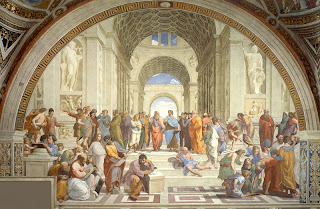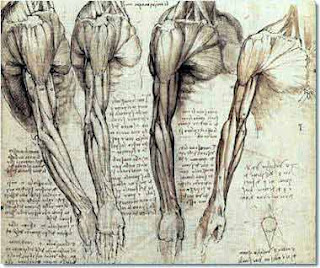






"We, their hearts, become fearful just thinking of loved ones who go away forever, or of moments that could have been good but weren’t, or of treasures that might have been found but were forever hidden in the sands.” (Coelho 124) The Alchemist’s protagonist and hero, shepherd boy Santiago, has a recurring dream of himself at the Great Pyramids of Egypt, which leads him to make a bold decision. He knows that if he doesn’t follow his dream, he might never find his treasure. Santiago embarks on a quest to find his true destiny, leaving behind everything he knows in Andalusia, Spain, and traveling to the Great Pyramids of Egypt. As he travels in pursuit of his dream, Santiago is challenged with many obstacles that make him think about what would’ve happened if he had stayed in his home. To help Santiago on his quest, he meets several significant individuals, who help keep him on the right path. To overcome the numerous obstacles and tough situations, Santiago utilizes three important qualities. Hesitancy, perceptiveness and inquisitiveness combine together to help Santiago successfully achieve his destiny.
Throughout his journey, Santiago is always being hesitant with the choices he makes, not wishing to regret the decision later. First, Santiago doesn’t know whether he should go to the Great Pyramids of Egypt, or just ignore his dream. Santiago thinks “Here I am, between my flock and my treasure,” the boy thought. “He had to choose between something he had been accustomed to, and something he wanted to have.” (Coelho 26) Santiago isn’t sure what decision to make; he doesn’t know whether or not his dream is telling him something, or whether it is just a dream. While debating, Santiago meets Melchizedek, the King of Salem. He talks to Santiago about ones destiny, and the Soul of the World. Also, Melchizedek tells Santiago that when you go after your destiny, the entire universe will help you achieve it. Through meeting Melchizedek, Santiago realizes that he should pursue his dream, and if he doesn’t, he will never achieve his destiny. Later, after traveling many miles in pursuit of his destiny, Santiago comes across another hard decision. After meeting Fatima, a woman of the desert, Santiago doesn’t wish to leave her. Santiago meets the alchemist, who helps him understand that he must continue on his destiny. Santiago tells the alchemist “I want to stay at the oasis,” the boy answered. “I’ve found Fatima, and, as far as I’m concerned, she’s worth more than treasure.” (Coelho 113) Santiago doesn’t want to leave Fatima, because he believes that he has everything he needs. He is letting his hesitancy get to him, and isn’t realizing the truth. The alchemist helps Santiago understand that listening to your heart is important, but you must follow your heart as well to achieve anything. Santiago knows that just because he feels happy, like nothing can go wrong, doesn’t mean everything is as it should be. Santiago fears that he might never see her again, and starts to regret leaving her. “It was difficult not to think about what he had left behind.” (Coelho 118) Santiago is full of fear of losing Fatima, and he doesn’t want to listen to his heart. If he stops listening to his heart, and gives into his fear, omens will stop coming to him, and his heart will stop talking to him. The tribal chieftains will see this, and he will lose his job. The alchemist helps Santiago understand the importance of carrying on, that it is all right to be hesitant and afraid, but in the end you must do what is right. Hesitancy is not always the best trait to have, but in Santiago’s case, it is. By always being hesitant about the decisions he made, he started observing his surroundings a little more carefully.
Along his search for his destiny, Santiago has learned to observe his surroundings in more depth. Santiago first starts doing this after he meets Melchizedek, who tells him about things he has never known. Santiago thinks “The candy seller had a smile on his face: he was happy, aware of what his life was about, and ready to begin a day’s work…He’s doing it because it’s what he wants to do, thought the boy.” (Coelho 41) Santiago realizes that what the King of Salem did was impressive, but with practice, anyone could do it. Just by looking at the candy seller, Santiago could tell something about his life. He learns that being perceptive can help him on his quest, if he can observe his surrounding carefully, he can try to be careful with his decisions. While working for the crystal merchant, Santiago sees and omen. “The boy, accustomed to recognizing omens, spoke to the merchant.” (Coelho 54) Over time, Santiago has learned to recognize omens, which is something not everyone learns to do. Everyone can see omens, but only those truly looking for their destiny can see them. If someone believes that they do what they are truly supposed to do, they won’t be looking for other opportunities in life. But Santiago realizes that he can do more than be a shepherd boy, so he looks for omens. Santiago also realizes that the crystal merchant has many opportunities to improve his shop, he just doesn’t realize it. After leaving, Santiago continues on his journey to the Great Pyramids of Egypt. While in the desert, Santiago sees something that could mean danger and talks to the tribal chieftains. “Because my eyes are not yet accustomed to the desert,” the boy said. “I can see things that eyes habituated to the desert might not see.” (Coelho 101) Santiago realizes this is an omen he is supposed to see, and it is up to him to do something. A person’s omens aren’t supposed to be seen by every person, only those the omen is relevant to. Just because other people can’t see the omen, doesn’t mean that Santiago is wrong. All it means is that someone who isn’t looking at omens won’t see anything they don’t believe is there. When looking at omens, Santiago became more focused on what is happening around him. Thus, Santiago started to become more inquisitive about things happening around him.
Santiago has learned that when you are confused or in doubt, it is always beneficial to ponder, ask questions, and reflect. Chances are, there are people around you who will have the answers. Santiago learned about the Principle of Favorability from Melchizedek, but didn’t know what it was. “But he wanted to know what the “mysterious force” was; the merchant’s daughter would be impressed when he told her that!” (Coelho 20) Santiago was wise from traveling from town to town, and reading books, but he had no idea what Melchizedek was talking about. He learned that it’s okay not to know everything, to learn you must ask questions. As Melchizedek continued telling Santiago about the Principle of Favorability, Santiago was finding it hard to believe. “Even when all you want to do is travel? Or marry the daughter of a textile merchant?” (Coelho 21) This quote shows that Santiago isn’t quick to believe everything he is told, he asks questions to make sure he understands everything going on. This can help him on his quest because he can learn new information of importance. For example, another person who helped Santiago learn something new was the Englishman. The Englishman taught Santiago that people have different ways of learning, and people should stay to stick to the one that helps them learn the best. Santiago decided to read the Englishman’s books. “And I’d better read you books” said the boy.” (Coelho 76) Santiago became disappointed when he read the Englishman’s books. He realized that you really didn’t learn much from the books; you just did what it told you to. This shows that Santiago is always trying to learn new information, ideas, and concepts, but he knows that not everything is best for him. Santiago understands part of alchemy, and the Master Work, but he isn’t sure about everything. But he does know that even though he understands a little about alchemy, doesn’t mean it is right for him. This also shows that Santiago makes an effort to learn more, whether he is sure he will like it or not. Santiago has gained a lot of knowledge from being inquisitive all the time, and this has helped him in many ways throughout his quest. Without asking for help, Santiago never would have reached his destiny.
Over time, Santiago learns to listen to his hear, and follow the omens to his destiny. Santiago begins, and ends his journey in his home, Andalusia, Spain, at the ruins of an ancient church. It is here that Santiago finds his treasure, and finally finds his treasure. Santiago uses his three best qualities to the best he can, and knows that everything is as it should be. Santiago started his journey, unaware of many of life’s truth, and ended his journey changed into a confident man. Achieving your destiny is a life-changing journey, and an important part in your life. Santiago knew that, and successfully achieved his destiny with the help of many individuals. Santiago’s story gives a message of never giving up, always continuing forward. People will never achieve their destiny if they give up, or follow their dreams.
Determination
I am not sure what my destiny is, as I have not given it much thought. But I do know that being determined will help me throughout my life because I will be able to try and overcome difficult situations and obstacles. Santiago was determined to achieve his destiny, as am I. Santiago was always ready to pursue his dream, and find his destiny, showing much determination. He never gave up, and hopefully, I won't either. By using my determination, I believe that I will be able to successfully achieve my destiny. It make take some time to achieve, but hopefully, with the help of others and my determination, it will be done. By having determination, I can achieve milestones in my life. Santiago slowly, but surely, found his true destiny by using his traits to the best he could. I hope that one day, I will be able to think back on what Coelho's message in the Alchemist, and say that I successfully achieved my destiny.